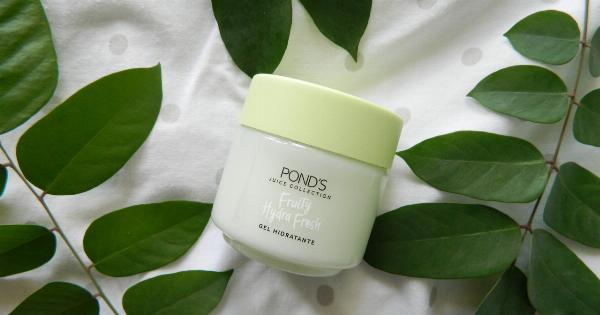When it comes to skincare, it seems that everyone has their own set of beliefs and misconceptions. From miracle products to bizarre DIY remedies, there is an overwhelming amount of information out there.
Unfortunately, not all of it is accurate or even beneficial for our skin. It’s time to debunk some of the most common skincare myths and set the record straight.
Myth 1: Expensive Products are Always Better
One of the most persistent myths in the beauty industry is that expensive skincare products are better and more effective than their affordable counterparts. However, the truth is that price does not always reflect the quality or efficacy of a product.
While some high-end brands may use more luxurious ingredients or have better research and development, there are also many budget-friendly options that provide excellent results. It’s important to look beyond the price tag and focus on the ingredients and reviews when choosing skincare products.
Myth 2: Natural Products are Always Safe
Another common misconception is that natural skincare products are always safe and free from harmful ingredients. While natural ingredients can have their benefits, not all of them are suitable for every skin type.
Additionally, there are instances where natural ingredients can cause allergic reactions or sensitivity. It’s crucial to understand that natural does not automatically equate to safe. Always read the ingredient list and do a patch test before incorporating any new product into your skincare routine.
Myth 3: You Only Need Sunscreen on Sunny Days
Sunscreen is not just for beach vacations or sunny days. Many people mistakenly believe that they only need to apply sunscreen when the sun is out or during the summer months. However, UV rays are present all year round, even on cloudy or rainy days.
It’s important to make sunscreen a part of your daily skincare routine, regardless of the weather. Protection from harmful UV rays is crucial in preventing premature aging, skin damage, and even skin cancer.
Myth 4: Oily Skin Doesn’t Need Moisturizer
Contrary to popular belief, oily skin still needs moisturizer. Many people with oily skin tend to skip moisturizer, fearing that it will make their skin greasier.
However, when the skin lacks moisture, it can actually overproduce oil to compensate, leading to more breakouts and congestion. The key is to find a lightweight, oil-free moisturizer specifically formulated for oily or combination skin types. Moisturizing the skin can help balance oil production and keep the skin hydrated.
Myth 5: Scrubbing with Harsh Exfoliants is Necessary for Smooth Skin
Exfoliation is an important step in any skincare routine, as it helps remove dead skin cells and reveals a smoother complexion. However, using harsh exfoliants or scrubbing too vigorously can do more harm than good.
Over-exfoliating can disrupt the skin’s barrier function and cause irritation. It’s important to choose gentle exfoliants and avoid physical scrubs with rough particles that can create micro-tears on the skin. Chemical exfoliants such as AHAs or BHAs are often gentler and more effective at promoting smooth and radiant skin.
Myth 6: Acne is Only a Teenager’s Problem
Acne is commonly associated with hormonal changes during adolescence, but it can affect people of all ages.
Adult acne is a real and often frustrating condition that can be caused by various factors, including hormonal imbalances, stress, diet, or even certain skincare products. Remember, acne is not a reflection of poor hygiene, and it’s important to seek the advice of a dermatologist for an appropriate treatment plan, regardless of age.
Myth 7: Your Skin Can “Become Immune” to Skincare Products
Some people believe that if a product works initially, it will eventually stop being effective as the skin “becomes immune” to its effects. However, this is not true.
If a skincare product stops working, it’s likely due to changes in the skin’s needs or the product no longer being suitable. Our skin is not capable of building immunity to skincare products. It’s important to regularly reassess your skincare routine and make adjustments based on your skin’s changing needs.
Myth 8: Makeup with SPF Provides Adequate Sun Protection
While makeup products with SPF can offer some sun protection, relying solely on them is not enough. Most makeup products provide low SPF levels and are not applied in sufficient amounts to achieve the stated level of protection.
It’s always recommended to use a dedicated sunscreen as the last step in your skincare routine, regardless of whether your makeup contains SPF or not.
Myth 9: Pores Open and Close
You might have heard that pores open and close, like tiny doors, and that steam can help open them up. However, this is a common myth. Pores do not have muscles and cannot physically open or close.
The appearance of larger pores can be influenced by factors such as genetics, skin congestion, and age, but they do not actually expand or contract. Steaming your face can temporarily improve the appearance of pores by softening debris and facilitating their removal, but the effect is temporary.
Myth 10: All Skin Types Should Follow the Same Skincare Routine
Everyone’s skin is unique, and one size does not fit all when it comes to skincare routines. Different skin types have different needs and concerns.
For example, someone with oily skin may require more frequent exfoliation or oil-controlling products, while someone with dry skin may need richer moisturizers and gentle cleansers. It’s essential to customize your skincare routine according to your skin type and concerns to achieve the best results.




























